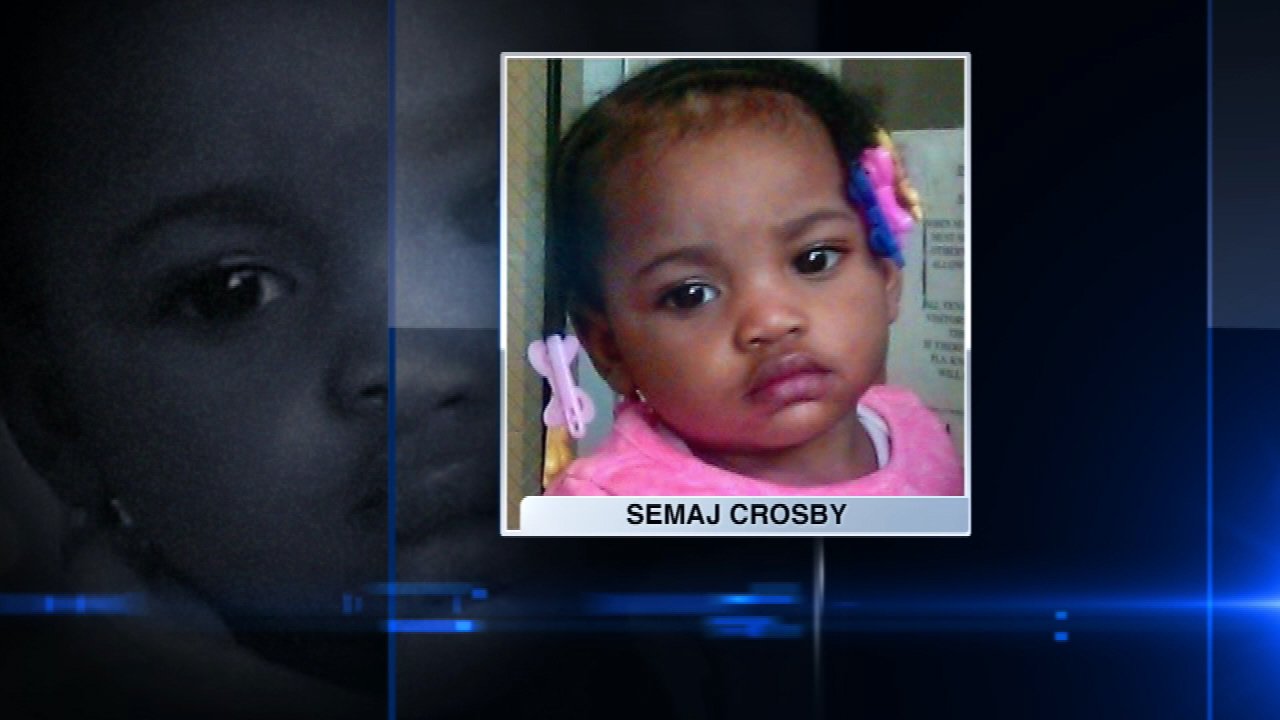Semaj Crosby's death brings reforms to DCFS
JOLIET TOWNSHIP, Ill. (WLS) -- Officials from the Illinois Department of Children and Family Services answered tough questions Tuesday about the death of 16-month-old Semaj Crosby during a joint Senate-House hearing.
DCFS officials were asked about what the department is doing differently in light of the toddler's death in April.
Semaj was found dead inside her home in southwest suburban Joliet Township. Her body was discovered under a couch in a filthy home days after a DCFS worker paid a visit for an inspection.
It was later discovered that Will County probation officers visited the home 40 times in about a year and the sheriff's office made about 14 visits to the home.
Semaj's death is going to change the way the Department of Children and Family Services does business. Calling DCFS the "emergency room" for troubled families, the agency's new director Beverly Walker said she is taking a number of steps to make sure another tragedy is not repeated.
"We are not going to make a couple of changes in procedure and announce the job done," Walker said. "I want to assure you that this work has our most urgent attention."
Semaj was found dead in her Joliet home in April, two years after DCFS began its first investigation into her family. A 22-page DCFS report showed case workers were at the home multiple times for reports of abuse and drug dealing.
"When I read DCFS report, I was shocked. It was the first time I knew what was going on. As godmother I was supposed to protect her," said Latoya Robinson, Semaj's godmother.
Semaj's godmother not only testified before a joint Illinois House and Senate committee, but she came to hear the changes DCFS is making.
Walker said the biggest failure in the Crosby case was the lack of communication between investigators and case workers providing services.
"We weren't working in a coordinated way. Over a two-year period, no one was looking at the evolution and the circumstances of this family that put the high risk on the table," Walker said.
Walker said case workers were looking at the case from a visit at a time. She said new data will allow them to coordinate with each other and look at a case on the whole.
But DCFS' changes are not enough for one Chicago lawmaker.
"Nothing you indicated today do I think is in the best interest of the child nor the family," said State Rep. Mary Flowers, D-Chicago.
Walker said some changes she is considering may need legislative help. She added they are looking at ways to make parents more accountable for cooperating with DCFS. Currently, cooperation with the agency is voluntary - and Walker said it may be time to re-think that.

















